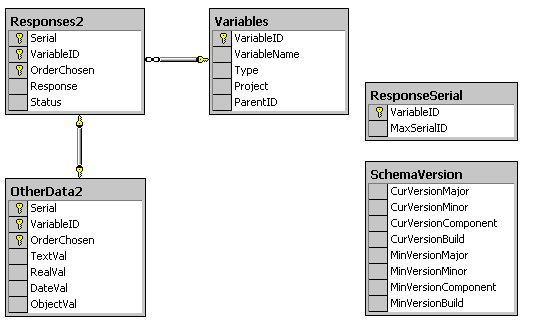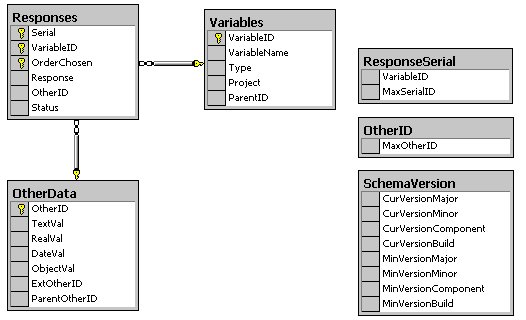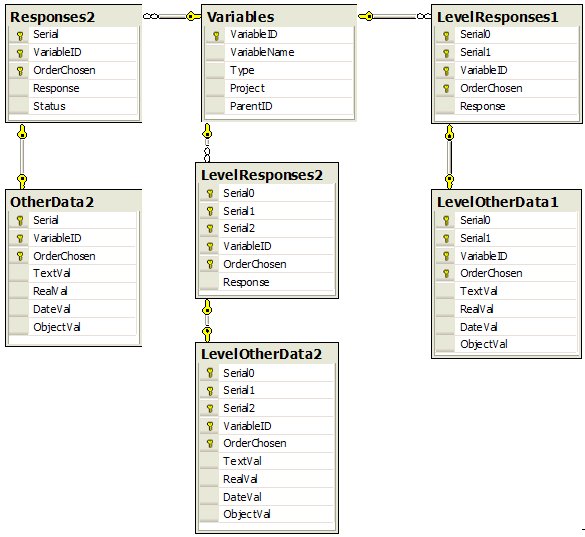Relational MR Database CDSC schema
RDB DSC 2 schema
The RDB DSC 2 schema is based on five fixed-width tables:
When writing data to a new database, RDB DSC 2 automatically uses the RDB DSC 2 schema.
In contrast, the original RDB DSC schema consisted of six fixed-width tables:
The RDB DSC 2 supports the original RDB DSC schema. Alternatively, you can upgrade older databases to the RDB DSC 2 schema. For more information, see
Upgrading older databases to the RDB DSC 2 schema.
The main difference between the RDB DSC and RDB DSC 2 schemas is the direction of the relationship between the Responses2 and OtherData2 tables in the RDB DSC 2 schema. In the RDB DSC schema, Responses referenced OtherData using the OtherID column, whereas in the RDB DSC 2 schema OtherData2 references Responses2 using the primary key.
Testing has shown that the RDB DSC 2 schema provides considerable performance advantages over the RDB DSC schema and the impact on database size is minimal, despite the larger primary key in OtherData2.
For an introduction to the advantages of using a multiple table schema of this type, see
Relational MR database (RDB) CDSC.
RDB DSC hierarchical data schema
The RDB DSC hierarchical data schema (introduced in version 6) is created when unexpanded levels appear in the metadata (as defined by the HasUnExpandedArray property in the MDM document). When unexpanded levels do not exist, the RDB DSC schema functions similarly to the pre-version 6 schema.
When unexpanded levels do exist, the hierarchical data schema is created based on these fixed-width tables:
When the maximum LevelDepth is larger than 5, an additional eight fixed-width tables are created:
See also



